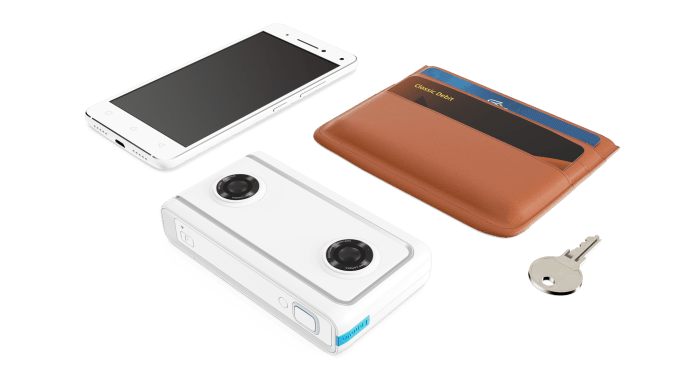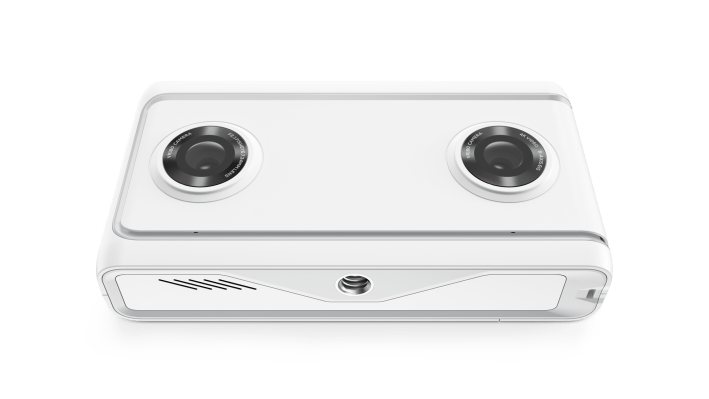Timed with the release of the Mirage Solo headset, Lenovo is also releasing the first camera based on Google’s 180 tech. The Lenovo Mirage Camera, which seems to be geared heavily toward YouTube creators, packs a pair of fisheye 13MP lenses positioned about eyes-distance apart, allowing for high-quality 3D vision that’s perfect for VR viewing. At $299, the camera isn’t too expensive for creators looking to experiment, but it’s a worthy question of how big that niche really is. It starts shipping today.
The camera is based on YouTube’s VR180 platform, which is aiming to basically make capturing VR live-action content a little more palatable to creators. Indeed, 360-degree cameras have certainly gotten a lot of attention, but creators haven’t really figured out what to do with them for the most part. Google’s compromise here is to simplify the medium with a camera that shoots half as much but isn’t too expensive and delivers crisp 3D 4K video.

In terms of build, the camera is very nice. It doesn’t feel like it’s overtly high quality, but it’s solid enough and, most importantly, very pocketable. Like many 360 cameras, battery life isn’t awesome at two hours, but the battery can be swapped in and out and the camera comes with a spare, which is very nice. VR180 means 180 degrees, which you will understand in photos, especially if your finger creeps to the outer edge of the top of the camera — it will invade the 180 half-dome.
Users can utilize Google’s VR180 app to preview shots and live-stream footage from the camera.
It could all be a winning solution, but the question is really whether this product is popping up a little late. Tons of YouTube creators have undoubtedly experimented with VR-focused video and have gotten tied up in the frustrations. While the number of headsets is still growing, it’s still not enough that VR viewers can sustain a channel, and while VR180 videos are visible in “magic window” mode without a headset as well on mobile and desktop, it obviously loses the 3D capability as a result, which is kind of the biggest draw.
